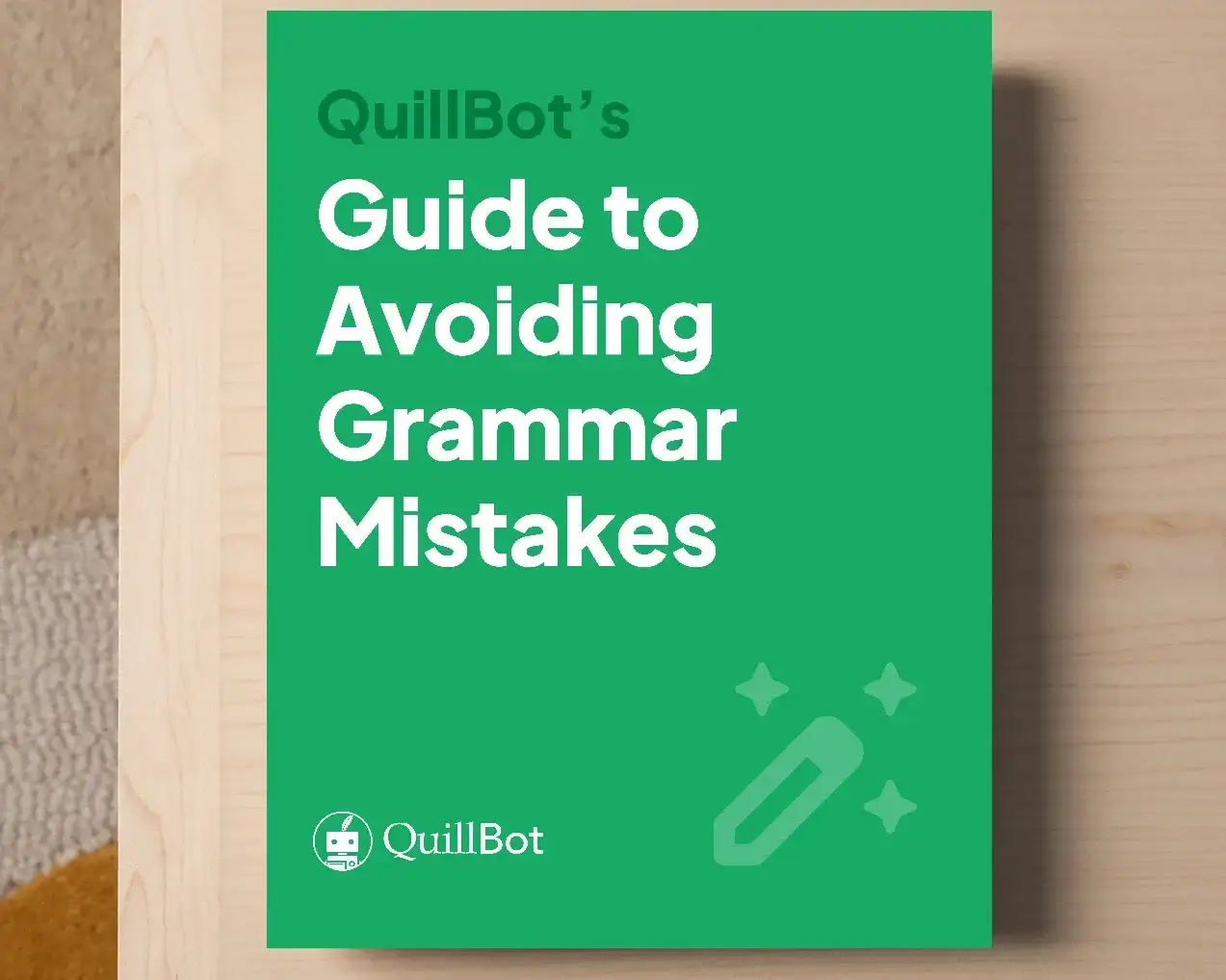You say you got this to someone when you want to encourage them; it means “You can do it!” (e.g., “Come on—just one more length of the pool; you got this!).
In this phrase, “got” means “have got,” so it’s always got not gotten.
QuillBot’s free AI Chat can help you to understand colloquial phrases like “you got this.”
Read this FAQ: What does you got this mean?
Yes, gotten is a word. It’s the past participle of the verb “get” in American English (e.g., “The weather has gotten better,” “Have you really gotten that impression?”).
Deciding if got or gotten is the word you need can be difficult because “got” isn’t just the simple past tense of “get.” It’s also part of the phrase “have got to” meaning “have to/must,” and “have got,” meaning “have.”
QuillBot’s free AI Chat can help you to understand words you’re not familiar with like “gotten.”
Read this FAQ: Is gotten a word?
The word gotta is an informal, spoken form of the phrasal modal verb “have got to” (e.g., “You’ve gotta see this movie; you’ll love it,” “I gotta ask you something”).
Deciding if got or gotten is the right word can be tricky—“gotten” is the past participle of the verb “get” in US English, but “got” isn’t just used as the simple past tense form of “get,” it’s also part of the phrase “have got,” meaning “have,” and the phrasal modal verb “have got to.”
QuillBot’s free AI Chat can help you with definitions of words like “gotta.”
Read this FAQ: What does gotta mean?
The part of speech of like is a preposition when it’s used to indicate similarity before a pronoun, noun, or noun phrase (e.g., “I want sneakers like that/hers”).
“Like” is a conjunction when it means “the way” (e.g., “Make sure you do it exactly like I told you”). You can use like or as with this grammatical function—“like” is more informal.
If you need to identify the part of speech of “like” in a specific sentence, why not ask QuillBot’s free AI Chat to help you?
Read this FAQ: What part of speech is like?
The part of speech of as is a preposition when it indicates someone’s job or role (e.g., “He worked as a bartender before he was famous”).
“As” is a conjunction when it means “at the same time” (e.g., “She told me as I was leaving”) and “the way” (e.g., “I did it exactly as it said in the instructions”).
It’s difficult to know whether to choose like or as in some contexts—“as,” not “like,” is the correct word in the phrase “the same X as” (e.g., “You have the same birthday as me”).
You can ask QuillBot’s free AI Chat to help you identify the part of speech of “as” in different sentences.
Read this FAQ: What part of speech is as?
You describe something as fun if you enjoy it or it entertains you (e.g., “The party was a lot of fun”), but as funny if it makes you smile or laugh (e.g., “The comedian was really funny”).
Use QuillBot’s Paraphraser tool to help you find alternative ways of expressing “funny” and “fun” that fit your specific context.
Read this FAQ: Is it fun or funny?
The standard comparative form of “fun” is more fun, not funner (e.g., “It’ll be much more fun with you there”). However, “funner” is sometimes used as the comparative in informal speech (e.g., “It’ll be much funner with you there”).
QuillBot’s free Grammar Checker will identify errors with comparative forms like “funner” instead of “more fun” in your writing.
Read this FAQ: Is funner a word?
Deprecate means “express disapproval of” (e.g., “The city council candidate deprecated his opponent’s efforts to change traffic patterns”).
Depreciate means “lose value” or “lower the value of” (e.g., “The currency depreciated quickly after the country’s civil war began”).
A free QuillBot grammar check can help you avoid mistakes with these commonly confused words.
Read this FAQ: What’s the difference in deprecate vs depreciate?
Track is “a defined route or path” (e.g., “To stay on track with this project, we need to finish the proposal today”).
Tract has several meanings: a piece of land, a bodily system (e.g., “the digestive tract”), or a small religious pamphlet.
QuillBot’s free Grammar Checker can ensure you’re using these commonly confused words correctly.
Read this FAQ: What’s the difference in track vs tract?
A tenant is someone who rents a property from someone else (e.g., “I’m looking for a new tenant for my garage apartment”).
A tenet is a key part of a larger concept (e.g., “One of the key tenets of the religion is compassion for all living beings”).
QuillBot’s free Grammar Checker can help you avoid mistakes with these commonly confused words.
Read this FAQ: What’s the difference in tenant vs tenet?
